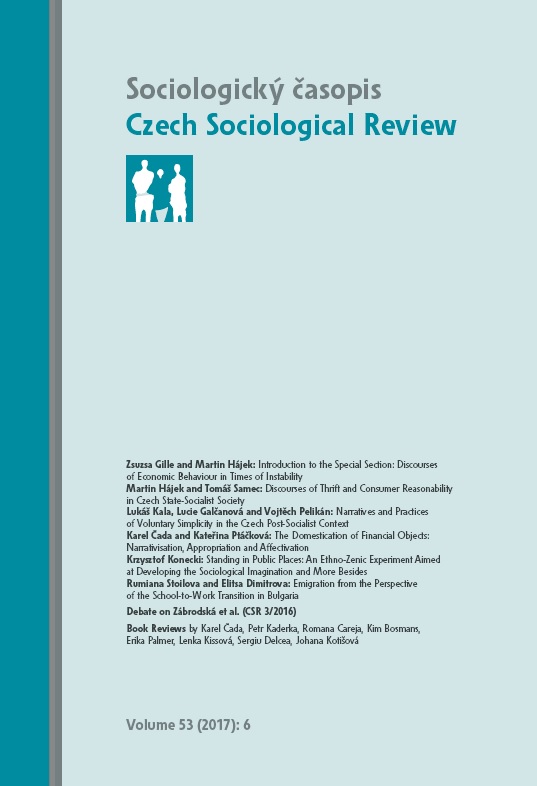The Domestication of Financial Objects: Narrativisation, Appropriation and Affectivation
The Domestication of Financial Objects: Narrativisation, Appropriation and Affectivation
Author(s): Karel Čada, Kateřina PtáčkováSubject(s): National Economy, Economic development
Published by: AV ČR - Akademie věd České republiky - Sociologický ústav
Keywords: family; discourse; economy; financialisation
Summary/Abstract: The article explores the general question of how family members articulate the rational and moral dimensions of the economy and the role in this played by language and family discourse—how families do the economy with words. It examines the resources family members employ family discourse to interpret and justify their economic behaviour, and puts forth the hypothesis that economic terms are re-articulated through everyday practices in the family world and that conversations inoculate expert terms with specific meanings. The article introduces the moral economy as a crucial principle of sense-making in family economic discourse and highlights the perception of the future as a key distinction between financial market economies and family-specific moral economies. Three mechanisms by which finance is domesticated are identified: (1) narrativisation—where financial objects are interpreted through the narratives of family history; (2) appropriation—where financial objects are embedded in the family moral economy; and (3) affectivation—where emotions change the meanings attached to financial objects. Narrativisation situates financial objects in time, appropriation sets them in the context of the family-specific moral economy, and affectivation connects them with personal identity and authentic experience.
Journal: Sociologický časopis / Czech Sociological Review
- Issue Year: 53/2017
- Issue No: 06
- Page Range: 857-879
- Page Count: 23
- Language: English

